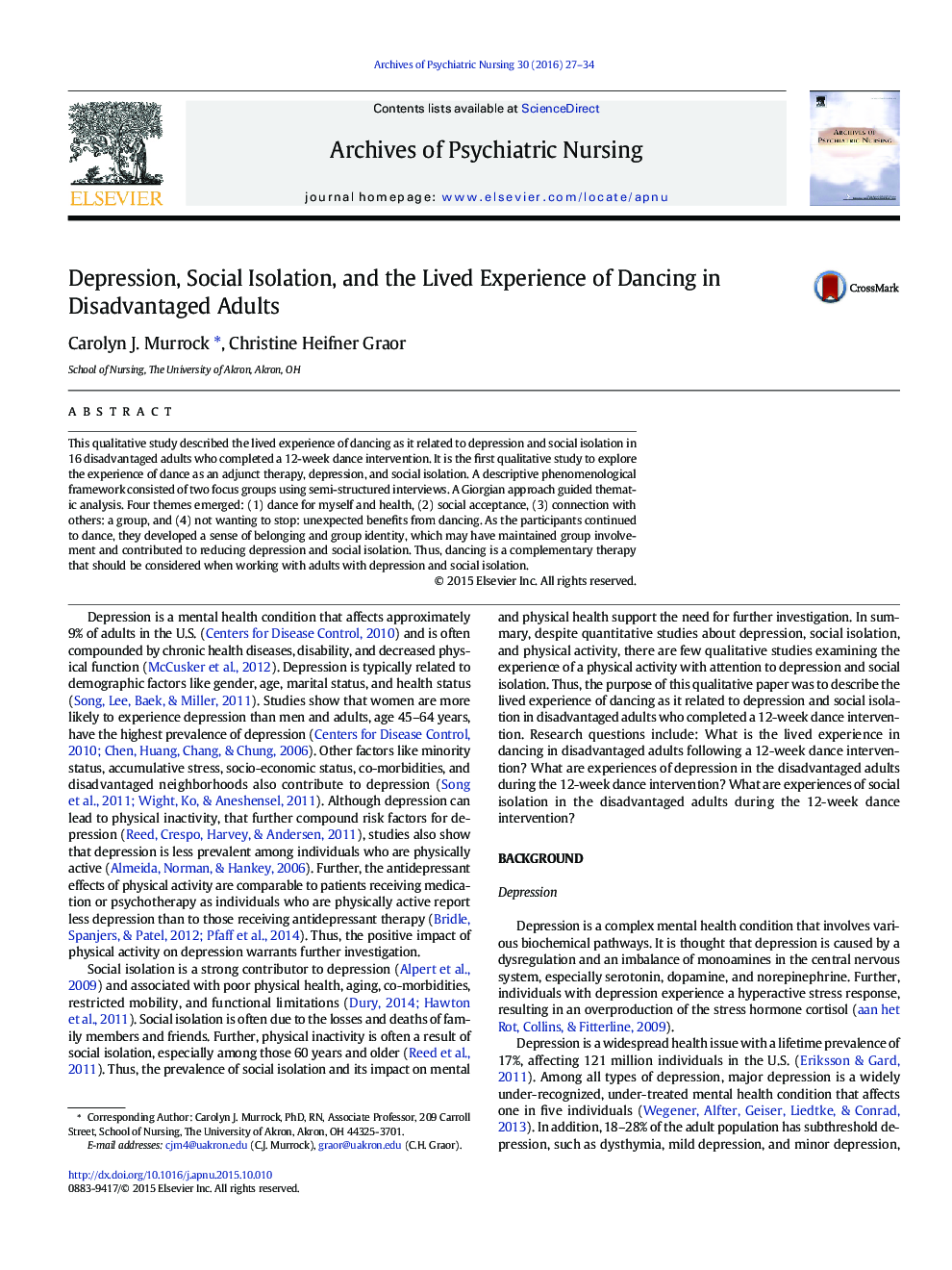| Article ID | Journal | Published Year | Pages | File Type |
|---|---|---|---|---|
| 6786945 | Archives of Psychiatric Nursing | 2016 | 8 Pages |
Abstract
This qualitative study described the lived experience of dancing as it related to depression and social isolation in 16 disadvantaged adults who completed a 12-week dance intervention. It is the first qualitative study to explore the experience of dance as an adjunct therapy, depression, and social isolation. A descriptive phenomenological framework consisted of two focus groups using semi-structured interviews. A Giorgian approach guided thematic analysis. Four themes emerged: (1) dance for myself and health, (2) social acceptance, (3) connection with others: a group, and (4) not wanting to stop: unexpected benefits from dancing. As the participants continued to dance, they developed a sense of belonging and group identity, which may have maintained group involvement and contributed to reducing depression and social isolation. Thus, dancing is a complementary therapy that should be considered when working with adults with depression and social isolation.
Related Topics
Health Sciences
Medicine and Dentistry
Psychiatry and Mental Health
Authors
Carolyn J. Murrock, Christine Heifner Graor,
